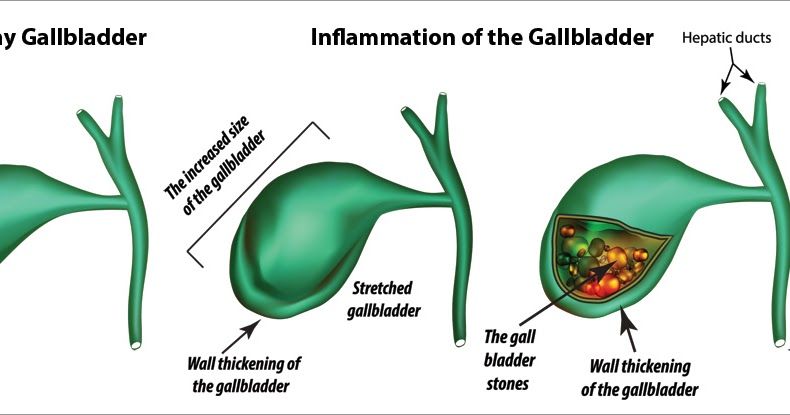A healthy gallbladder is a great thing, especially if you are prone to developing gallstones. Residing in the upper part of your liver, the gallbladder stores and releases bile when it’s needed for digestion. A healthy gallbladder should have smooth walls and no stones or other obstructions, but many people find that their gallbladders do not work properly. If you know what to look for, you can take steps to maintain your gallbladder function before it becomes impaired. You don’t have to be at risk of developing a problem with your gallbladder in order to take preventative measures; anyone can have an untidy livers and an inflamed or blocked bile ducts. Even so, if you are aware of the risks and take steps to avoid them, then you are more likely to keep your gallbladder functioning well.
Table of Contents
Stay away from fatty foods
If you have a fatty liver, your body is already struggling with digestion and processing fats. Although the symptoms are often mild, they can be the start of a long and painful decline if you don’t manage your diet. Fatty foods put a lot of pressure on your liver, which in turn puts pressure on your gallbladder. The longer you eat high-fat meals, the more likely you are to experience gallbladder pain. If you want to keep your gallbladder healthy, you should avoid fatty foods as much as possible. The liver uses fat-soluble vitamins, minerals, and antioxidants to process toxins, metabolize fat, and regulate blood sugar. If your liver has been inflamed for some time, it may not be able to absorb those vitamins, minerals, and antioxidants. If you are eating a high-fat diet, you are likely to be deficient in essential vitamins and minerals.
Watch your weight
If you have a fatty liver, then weight loss is essential to smooth liver function. As your liver struggles to metabolize fat, it puts pressure on your gallbladder and bile ducts. If a person is overweight and has a fatty liver, gallbladder removal is often recommended. However, maintaining a healthy weight can help to alleviate the pressure on your liver and gallbladder. If you have a fatty liver, you should also be mindful of what you put into your body. Some medications, including antibiotics and birth control pills, can cause your liver to become inflamed. If you are taking medication that is making your liver work harder, you should consider eating a low-fat diet to help your liver cope with the additional workload.
Exercise regularly
Regular exercise helps to promote the flow of bile within the liver and gallbladder. It also promotes the removal of toxins and fats from the liver. Regular exercise can help to burn off excess body fat, reducing the amount of pressure on your liver and gallbladder. Exercises that promote the flow of bile include walking, jogging, swimming, rowing, and cycling. When choosing an exercise, avoid impact activities, such as running, to reduce the strain on your liver and gallbladder. Exercising regularly also helps to promote an overall healthy lifestyle. If you are eating a low-fat diet and getting plenty of exercise, your liver will be less likely to become inflamed.
Stay hydrated
When your liver is inflamed, the flow of bile is reduced, meaning that your gallbladder can’t do its job properly. However, staying hydrated can help to alleviate the pressure on your liver and gallbladder. If you have a fatty liver, you will be able to flush out toxins and fats more efficiently when you are hydrated. If you are suffering from a fatty liver, you should drink plenty of water and other non-herbal teas to keep your liver healthy. You should also avoid grapefruit and grapefruit juice, as they can prevent your liver from metabolizing medications as intended.
Don’t smoke or be around second-hand smoke
Smoking has been linked to many health problems, including liver damage. If you have a fatty liver, you are likely to suffer more when you smoke. You should be aware of the damage that smoking does to the liver and gallbladder. As your liver is the organ that works to remove toxins from your body, smoking can affect its ability to effectively flush out toxins. As your liver is responsible for clearing toxins from your blood, smoking can cause your liver to work harder, which can put unnecessary pressure on the organ. If you have a fatty liver, you should avoid smoking and being around second-hand smoke to reduce the strain on your liver and gallbladder.
Conclusion
The liver is responsible for so much of our health, including digestion, metabolism, and immune function, that it’s no surprise that it can also cause plenty of health problems in itself. If you have a fatty liver, you should take steps to avoid developing a gallbladder problem. Eating a low-fat diet, being mindful of the medication you take, and exercising regularly can help prevent your liver from putting too much pressure on your gallbladder.
